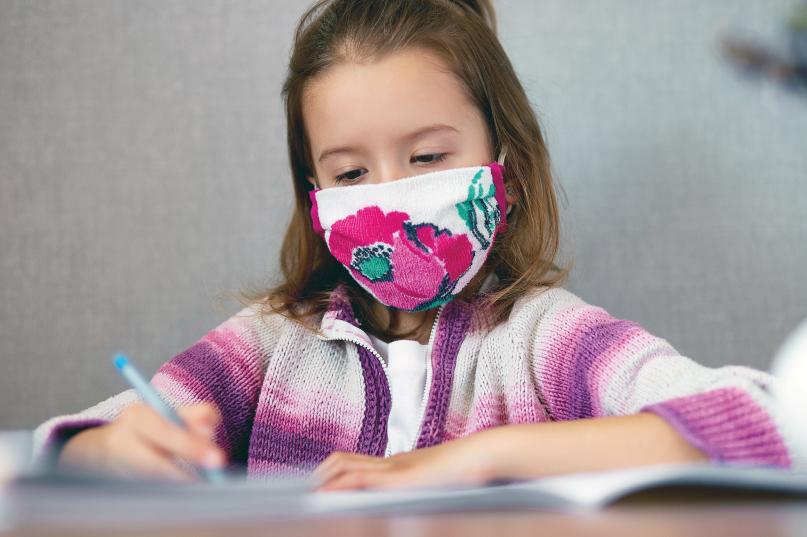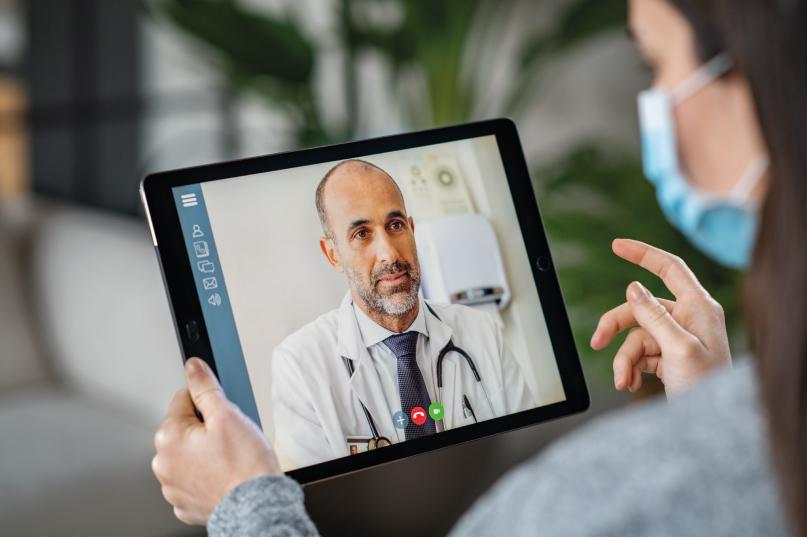A year and a half after the start of the pandemic, the world seems to finally be able to breathe a little easier. As countries move forward with COVID-19 vaccination campaigns, more people are getting immunized and citizens are able to resume many activities that were suspended due to the pandemic. However, the coronavirus is still circulating. There are new and more contagious variants, and many people are still not vaccinated or are only partially protected as they have not received the second dose of the vaccine.
In the Caribbean the situation is still precarious. The region, with an economy highly dependent on tourism, was hit hard due to a complete shut down in the industry. Now, with flights returning, an increase in tourism, and hotels and tourist areas reopening, many residents are finding some economic relief, but also are now finding themselves facing an increased risk of contracting COVID-19 due to a lack of vaccines and a slow and unequal rollout.
Only around 30% of people in the Caribbean are fully vaccinated against COVID-19. Though many countries in the Caribbean have joined the World Health Organization’s COVAX initiative and entering into bilateral agreements to obtain additional vaccines, overall they still have a low supply. While in the Caiman Islands 70% of people have been vaccinated, in Trinidad and Tobago, Saint Lucia and Grenada, only 13% of the population is fully vaccinated against COVID-19 according to data from mid-July.

Be aware of the symtoms | Foto: PALIG
Director of the World Health Organization, Dr. Carissa F. Etienne recently raised concerns about the possibility of increased infection rates due to the start of hurricane season in the Caribbean. She encouraged governments to consider bolstering hospital equipment and expanding shelter spaces to help reduce the possibility of transmission, even between members of the same family, as it can be very difficult to maintain social distance and ensure proper ventilation during a storm.
In order to keep infection and mortality rates under control, experts continue to recommend that people see a doctor as soon as possible upon noticing signs of COVID-19. Receiving timely medical attention not only helps prevent long-term and serious health issues such as long COVID-19 and even death, but also helps prevent others from becoming infected.
If you have a fever, cough or other symptoms, you may have COVID-19. Most people who see a doctor immediately upon the onset of symptoms have less serious cases of the illness and are able to recover safely at home. Your doctor will help you to create a plan for self-isolation and treatment with the appropriate medications to ensure you can emerge unharmed from the infection.
How do I know if I have COVID-19?
The symptoms of COVID-19 vary from person to person. Some people have very mild symptoms, while others become seriously ill. Symptoms can appear between 2 and 14 days after being exposed to the virus. The Centers for Disease Control and Prevention (CDC) reports that each person’s body reacts differently to the virus. Because of this, some people will have certain symptoms and not others. Symptoms that have been recognized and reported to date by people who have contracted COVID-19 are:
We want to know your opinion
How do you rate the content you just read/watched?
How much does it motivate me to live healthy?
I am...
Provider
Representative of a Company
Insured
Agent
None of the above
- Fever or chills
- Cough
- Cough
- Difficulty breathing (shortness of breath)
- Fatigue
- Body and muscle aches
- Headache
- Recent loss of sense of taste or smell
- Sore throat
- Congestion or runny nose
- Nausea or vomiting
- Diarrhea
Although the majority of COVID-19 cases have been in adults and the elderly, everyone is at risk of catching the coronavirus, regardless of age. This is why it is so important to pay attention to symptoms in children and teens as well, and to not dismiss them as just a common cold or seasonal allergy.
This is especially important in children with an underlying health issue that can make them more susceptible to coronavirus and represent a risk of a more serious infection or even death. This includes children with asthma or a chronic lung disease, neurological, metabolic or genetic problems, sickle cell disease, congenital heart disease, and obesity.

The risk of not going to the doctor
Studies have shown that COVID-19 does not affect all population groups equally. Individuals with more underlying conditions are at an increased risk of having complications due to COVID-19.
For example, people with chronic illnesses like diabetes, cardiovascular disease, high blood pressure, obesity, and respiratory illnesses, among others, are at a higher risk of experiencing serious complications due to COVID-19.

Delaying seeking medical attention can mean that the effects of the disease can last longer and cause damage to organs, like the lungs, even when coronavirus is no longer in the body.
Many people don’t want to stop working even though they feel ill due to a fear of losing their jobs in a job market that has been hit hard by the pandemic, but this is a high-risk gamble. By not allowing yourself to recover properly you can lose even more productivity in the medium and long term as the result of not having received proper medical attention in a timely manner, making it necessary to miss more days of work.
© 2025 Pan-American Life


